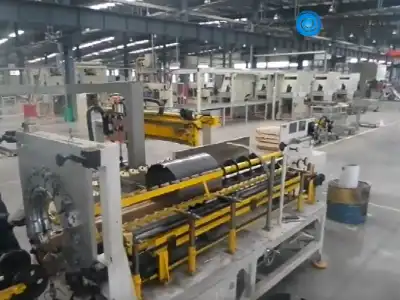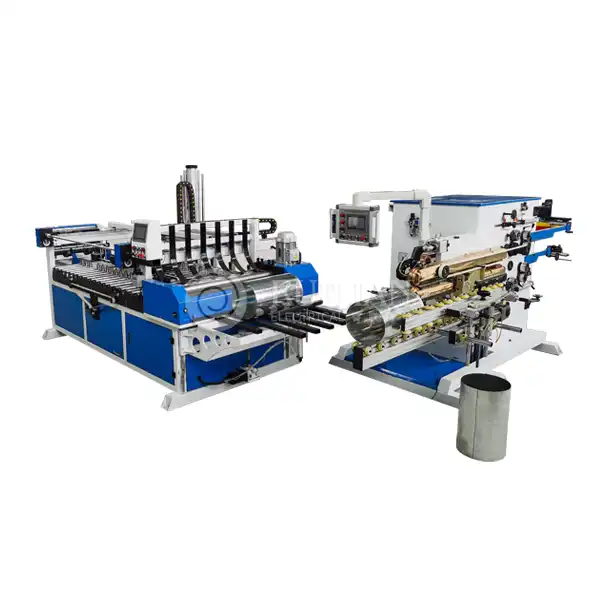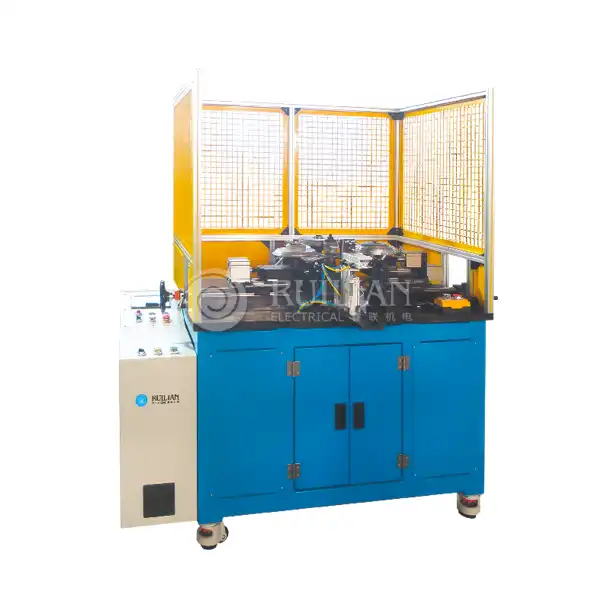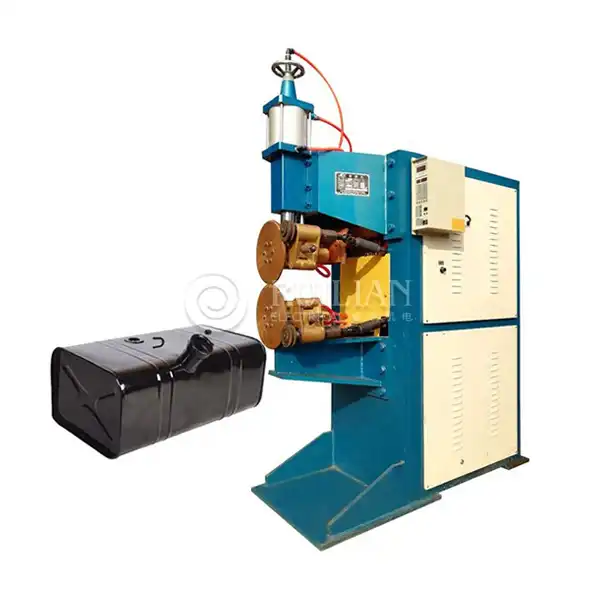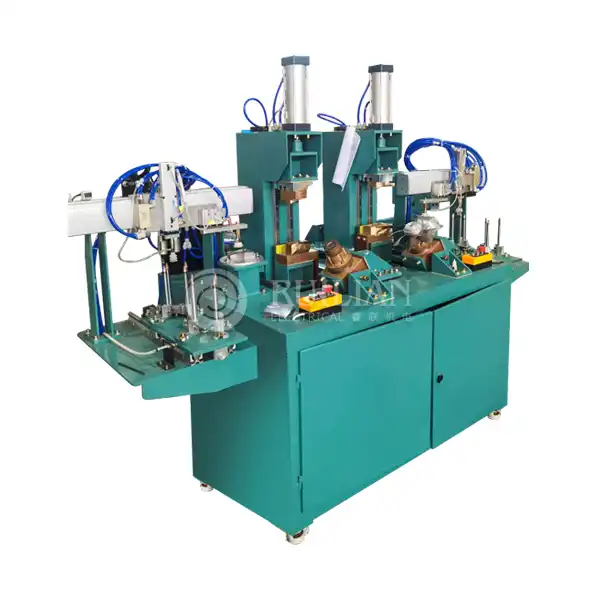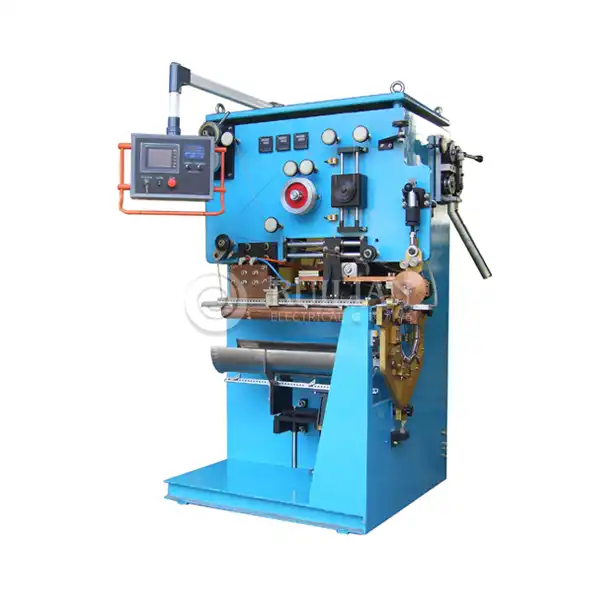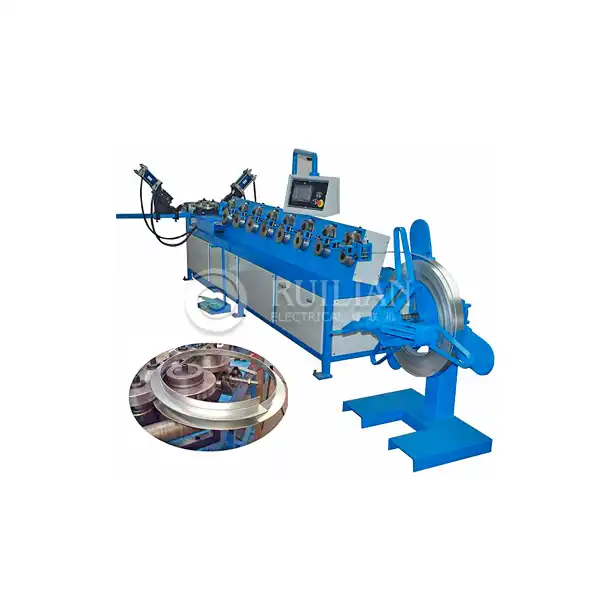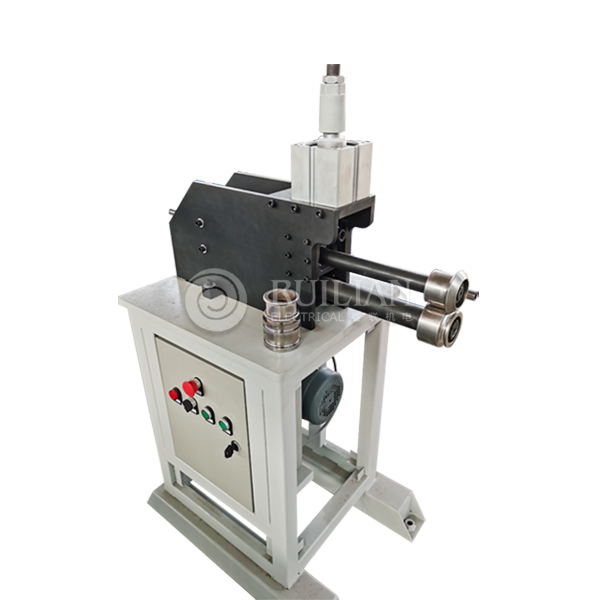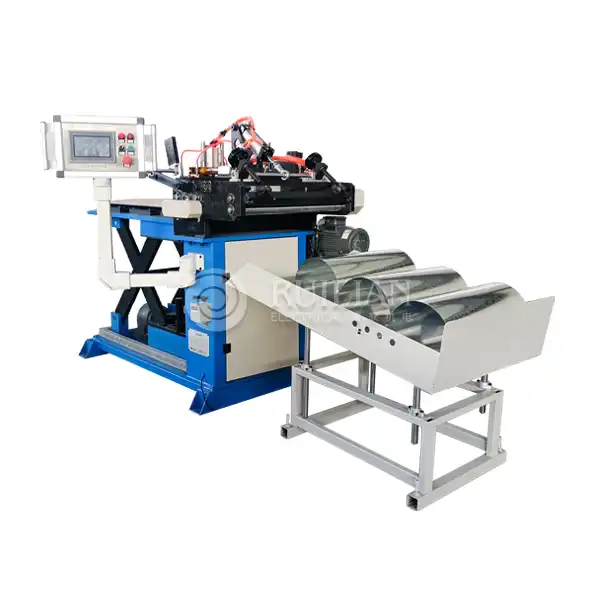Personal Protective Equipment (PPE) for Steel Drum Welding
The foundation of safety when operating a steel drum welding machine lies in appropriate personal protective equipment. Welding processes generate intense heat, bright light, and potentially harmful fumes, making proper PPE non-negotiable.
Welding helmets
Welding helmets are a crucial component of PPE. These should be equipped with auto-darkening filters that adjust to the welding arc's brightness, protecting the operator's eyes from the intense light and harmful UV radiation. The helmet should also provide adequate coverage for the face and neck to shield against sparks and spatter.
Heat-resistant gloves
Heat-resistant gloves are essential for protecting hands from burns and cuts. These should be made from durable materials like leather or specially treated fabrics that can withstand high temperatures and provide a good grip on tools and materials.
Flame-resistant clothing
Flame-resistant clothing is another vital aspect of PPE. This includes coveralls or jackets and pants made from materials like treated cotton or special synthetic blends that resist ignition and provide insulation against heat. Ensure that clothing covers all exposed skin, including arms and legs.
Steel-toed boots with non-slip soles
Steel-toed boots with non-slip soles are necessary to protect feet from falling objects and provide stability on potentially slippery surfaces around the welding area. These should also be resistant to heat and sparks.
Respiratory protection
Respiratory protection may be required depending on the welding environment. In areas with inadequate ventilation or when working with certain materials, a welding respirator or powered air-purifying respirator (PAPR) system should be used to prevent inhalation of harmful fumes and particulates.
Workplace Safety Measures for Steel Drum Welding Operations
Beyond personal protective equipment, the work environment itself plays a crucial role in ensuring safety during steel drum welding operations. Implementing comprehensive workplace safety measures is essential for minimizing risks and creating a secure operating environment.
Proper ventilation
Proper ventilation is paramount in any welding area. Steel drum welding can produce various fumes and gases that may be harmful if inhaled. Ensure that the workspace is equipped with adequate ventilation systems, such as local exhaust ventilation or general mechanical ventilation, to remove these contaminants from the breathing zone of welders and nearby workers.
Fire prevention
Fire prevention measures are critical when working with high-temperature welding equipment. Keep the welding area clear of flammable materials, including paper, wood, and chemicals. Have appropriate fire extinguishers readily available and ensure that all personnel are trained in their use. Consider installing fire-resistant screens or curtains to contain sparks and spatter within the welding zone.
Electrical safety
Electrical safety is another crucial aspect of workplace safety for steel drum welding machines. Regularly inspect all electrical connections, cables, and plugs for signs of wear or damage. Ensure that the welding machine and all associated equipment are properly grounded to prevent electric shock hazards. Keep the work area dry and use appropriate insulating mats if working in damp conditions.
Maintenance and repair
Implement a lockout/tagout procedure for maintenance and repair of steel drum welding machines. This ensures that the equipment is completely de-energized and cannot be accidentally started while being serviced, protecting both maintenance personnel and operators.
Ergonomic considerations
Ergonomic considerations are often overlooked but are crucial for long-term operator health and safety. Design the welding station to minimize awkward postures and repetitive motions. Provide adjustable work surfaces and seating where possible to accommodate different operators and reduce the risk of musculoskeletal disorders.
Operational Safety Protocols for Steel Drum Welding Machines
While personal protective equipment and workplace safety measures form the foundation of a safe welding environment, adhering to proper operational protocols when using a steel drum welding machine is equally important. These protocols ensure that the equipment is used correctly and safely, minimizing the risk of accidents and maximizing efficiency.
Operator training
Operator training is the cornerstone of safe steel drum welding machine operation. All personnel who will be using or maintaining the equipment should undergo comprehensive training on its proper use, safety features, and potential hazards. This training should be regularly updated to account for new equipment or changes in safety regulations.
Pre-operation inspection
Pre-operation inspection is a critical step that should never be skipped. Before starting any welding work, operators should thoroughly inspect the steel drum welding machine for any signs of damage, wear, or malfunction. This includes checking all electrical connections, mechanical components, and safety devices. Any issues should be reported and addressed before the machine is used.
Proper setup of the welding area
Proper setup of the welding area is essential for safe operation. Ensure that the steel drum is securely positioned and that all clamps and fixtures are correctly adjusted. Clear the immediate area of any unnecessary tools or materials that could interfere with the welding process or pose a tripping hazard.
Maintain awareness
During operation, maintain a heightened awareness of your surroundings. Be mindful of other workers in the area and use appropriate signage or barriers to warn others of the welding operation. Never leave the machine unattended while it's in operation, and always follow the manufacturer's guidelines for duty cycle to prevent overheating.
Post-operation procedures
Post-operation procedures are just as important as those during welding. Allow the machine and welded drums to cool properly before handling. Conduct a post-operation inspection to identify any issues that may have arisen during use. Clean the work area thoroughly, disposing of any waste materials appropriately.
Regular maintenance
Regular maintenance of the steel drum welding machine is crucial for both safety and performance. Establish and adhere to a maintenance schedule as recommended by the manufacturer. This should include routine cleaning, lubrication of moving parts, and replacement of wear items. Keep detailed records of all maintenance activities for future reference and compliance purposes.
In conclusion, the safe operation of a steel drum welding machine requires a multi-faceted approach that encompasses personal protective equipment, workplace safety measures, and strict operational protocols. By implementing these safety precautions, operators can significantly reduce the risk of accidents and injuries while ensuring the efficient and effective production of high-quality welded steel drums.
At RUILIAN, we are committed to providing not just superior welding equipment but also comprehensive support to ensure its safe and effective use. Our steel drum welding machines are designed with safety in mind, incorporating the latest technological advancements to protect operators and enhance productivity. For more information about our products, safety features, and best practices, please visit our website at www.rlseamwelding.com or reach out to our expert team at ry@china-ruilian.cn. Your safety is our priority, and we're here to support you in creating a secure and efficient welding environment.


